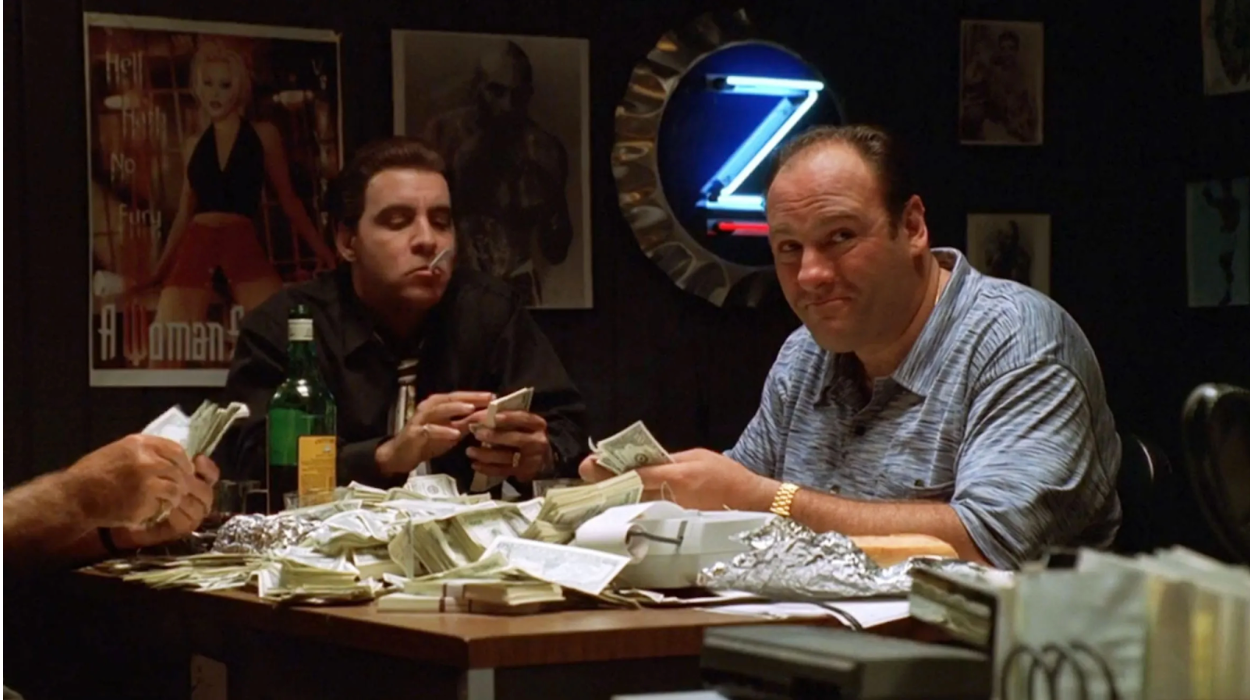Written by Daniel Rosenkranz
24 karat gold watches, 50-foot yachts, houses on the shore, and so much liquid cash it needs to be hidden in the bedroom closet of a retirement home. All of this- from the watches to the cash- define the lavish life of Tony Soprano. In the renowned fictional TV show The Sopranos, Tony is the main character, anti-hero and boss of a mafia family. The show ran on HBO from 1999 until 2006, where it culminated with its 6th and final season. Throughout the duration of the show the viewer becomes extensively familiar with the inner workings and interpersonal relations of a mafia family. Despite its attention to detail, the show doesn’t opt to delve into the economics of the multitude of businesses Tony and the family are involved in. However, that doesn’t mean the fictional endeavors from The Sopranos can’t be used as a model to illustrate the economic concepts of organized crime, and answer the essential question: how do organized crime families make so much money without disbanding and ending up in jail?
To a casual observer, organized crime is just a group of people that are paid to commit acts of violence or conduct illegal business. However, organized crime’s reach is far more extensive and complicated. The intention of organized crime is to acquire equity and salary but avoid direct management in places of legitimate business. In order to provide insight it will be helpful to highlight a few particular income streams. A ‘no-show job’ is a term used throughout The Sopranos but is never fully explained in detail. It quite literally means being an employee but not showing up for work. This isn’t just a Sopranos concept; it has taken place in the New York Harbor with no-show employees making annual salaries exceeding $400,000 (McGeehan). Similar to many corporate structures, crew members in the mafia look to work their way up the ladder with promotions. Doing this requires murders, cleaning, driving and any of the dirty work senior members request. Once crew members are ‘made men’, meaning they have earned captain status, the tables completely turn. Captains collect money on the various businesses, can order crews and for the most part don’t operate out in the field. Additionally, they can work as loan sharks, offering loans to poor creditors and those with prior accumulated debt When these debtors inevitably can’t pay back what they owe, they are met with violence and lose significant collateral. In The Sopranos, Dave Scatino owns a sports store called Ramsey Sports and Outdoors. He takes out a loan from Tony to gamble in a poker tournament. He ends up losing all the money and more, and can’t pay back what he owes. Tony took his sports store as collateral, and charged everything he could possibly want to the business, which was of course bankrupted. Loan sharking, gambling dens, sports books, no-show jobs, protection money and many more inflate the pockets of organized crime families.
Receiving illegal cash for various jobs would only get Tony and crew so far, as it cannot be used to make legal purchases – such as for The Stugots – Tony’s famous yacht. The money first needs to be laundered in order to be declared in tax returns. Hence, the family makes arrangements with certain local businesses. Typically cash-based businesses are chosen because it is much more difficult for the IRS to review their statements. Money laundering is a criminal activity whose “essential economic function lies in the transformation of liquidity of illicit origin, or potential purchasing power, into actual purchasing power usable for consumption, saving, investment or reinvestment” (Masciandro, 2). The chosen business takes cash given to them by the crime family, falsifies statements of where it originates, and pays the respective crew member a healthy salary. In order to counterfeit the statements it takes extreme caution and attention to detail, as the IRS and FBI are trained on what to look for. The Soprano family launders through Satrieles, Bada Bing and the chicken market. These three cash-based businesses are feature hang out spots for Tony and his crew. Although the viewer gains no insight into the prior mentioned specifics, it is inferred that it’s conducted in a similar manner.
Tony himself collects his main source of income through his ‘waste management consultant’ position at Barone Sanitation. It is not quite the same as money laundering as Tony doesn’t directly generate revenue for Barone. However, he uses violence and threats to ensure that Barones routes won’t be given to competition, and if new ones open up, they now belong to Barone. He is essentially getting paid to use his status to monopolize Barone Sanitation in the garbage market. Thus, giving them the monopolistic ability to price-make. Barone can charge higher prices than other firms in the industry and neglect customer complaints because they are backed by Tony’s crew. This is a unique phenomenon because Tony is getting a salary that puts him in the top 5% of earners in the country without showing up to the office.
Although fictional, The Sopranos portrays the manner in which an organized crime family can conduct their operations. As the show itself focuses on the intrapersonal relationships, the viewer misses out on much of the economic implications of the illegal activities. Many recognize the names and examples from The Sopranos, so using the show as a case study of real organized crime is a beneficial way to understand the economics. It is evident the advanced systems of a crime family keep them out on the street. The phenomenon of a universally recognized illegal organization that survives for years is shocking, but as Dr. Melfi famously said: “People only see what you allow them to see”.
References
Fandom. “Category:Businesses.” The Sopranos Wiki, https://sopranos.fandom.com/wiki/Category:Businesses.
Masciandaro, Donato, and Marc Quintyn. “Regulating the Shadow Banking System.” SSRN Electronic Journal, 2013, doi:10.2139/ssrn.2204243.
Santora, Marc. “No-Show Jobs Taint New York Harbor Waterfront, Commission Says.” The New York Times, The New York Times, 22 Mar. 2012, https://www.nytimes.com/2012/03/22/nyregion/no-show-jobs-taint-new-york-harbor-waterfront-commission-says.html.
TEDx Talks. “The Art of Deception | Kevin Mitnick | TEDxSBU.” YouTube, 13 June 2014, https://www.youtube.com/watch?v=8MjDEuTuRD0.
Zaremba, Adam. “The Economics of Money Laundering.” Business Insider, 15 June 2011, https://www.businessinsider.com/the-economics-of-money-laundering-2011-6.


